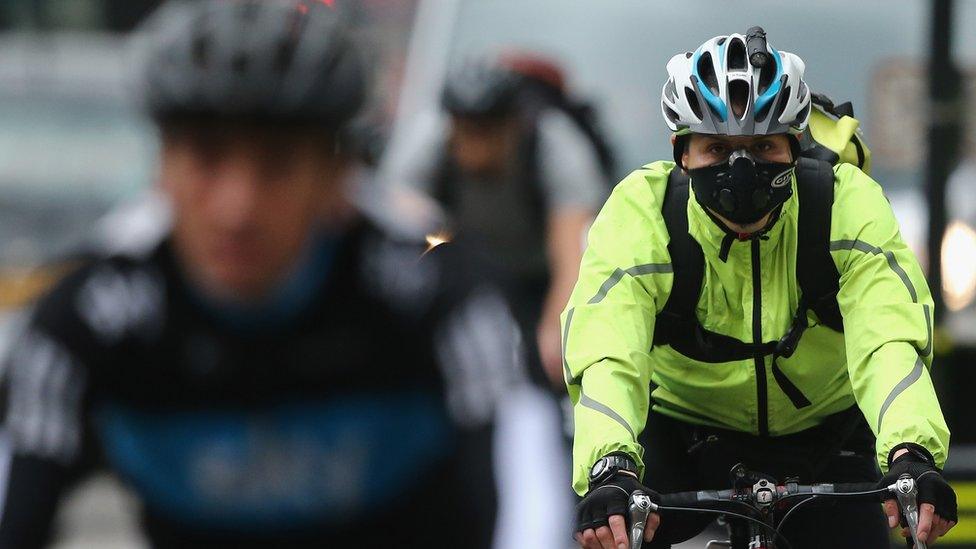Ministers will not appeal pollution ruling
- Published

Air pollution has been described as a "public health emergency"
The UK Government will publish its draft plan to tackle illegal levels of air pollution after it decided not to appeal against a High Court ruling.
Last week, the High Court's rejected a bid by ministers to delay publication of the plan, which was prompted by high levels of nitrogen dioxide (NO2).
This means the document should be published in the next week.
Courts had given ministers until Monday 24 April to set out the draft guidelines.
But on the Friday before the deadline, the government lodged an application to delay release until after the general election on 8 June.
They argued that publication would fall foul of election "purdah" rules.
Bid to delay air pollution plan fails
A special hearing was held on Thursday 27 April to discuss this application, but it was rejected by the judge, Mr Justice Garnham.
Now, Prime Minister Theresa May's official spokesman has said the plan will be published between Thursday's local government elections and the deadline of 9 May imposed in the hearing last week.
This is five days after the local elections, but long before the general election on 8 June.
He told a regular Westminster media briefing: "We have looked at the judgment from last week and we will not be appealing.
"The court deadline was May 9 and we will be meeting that deadline. We will publish at the earliest opportunity after local election purdah is over and before the deadline."
The 31 July date for publication of the final plan remains unchanged.
The development is the latest move in a long-running legal battle between the government and ClientEarth, a group of environmental lawyers.
ClientEarth chief executive James Thornton said: "We're delighted the government has decided to stop dithering and delaying and look forward to seeing its air quality plans after the local elections.
"We'll be analysing these plans and making sure they are up to scratch.
"We must see truly robust measures, including a national network of clean air zones to keep the dirtiest diesel vehicles away from pollution hotspots in our towns and cities."